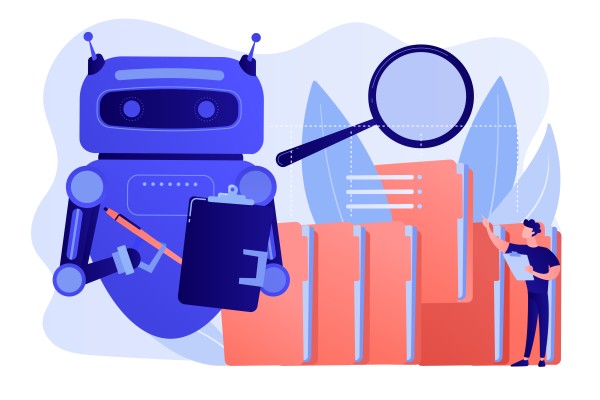Artificial intelligence has made its mark across various sectors, including business, technology, and research for different projects. It has streamlined the research process, resulting in more accurate and succinct reports in every project undertaken. In this blog post, we shall explore the best ai reserach tools.
Developers have created a multitude of tools to enhance task efficiency by integrating artificial intelligence. They design these tools to evolve and adapt to the ever-changing landscape of the internet. This evolution has led us to explore various AI research tools that prove beneficial for projects. While some of these tools may be complex to use, they offer unparalleled value in research.
So, what are the top AI research tools? To understand this, let’s first delve into the concept of research tools.
What are AI Research Tools?
AI research tools facilitate seamless communication during the research process or while performing tasks on scientific, academic, or business platforms. These tools represent a significant advancement in research, enabling the creation of content that is free from errors or inaccuracies, and content that is original and not plagiarized.
They excel in areas such as paraphrasing, rephrasing, rewriting, and checking for grammatical errors. These tools provide numerous advantages for researchers in bringing their findings to light, which we will explore further in the next section.
Read Also:
What are the Advantages of AI Research Tools?
We cannot overstate the advantages of AI research tools in today’s world. These tools offer a wide range of benefits, including:
- Paraphrasing: This feature allows you to transform content that lacks context into a more organized format, making it easier for readers to navigate.
- Sentence Rewriting: This aspect of AI research tools helps to enhance the engagement and readability of your content by rephrasing sentences.
- Rewriting: This tool enables you to revise your content to make it more powerful and engaging, suitable for any platform.
- Checking for Plagiarism: AI research tools are designed to verify the originality of content, a crucial step in research and content creation, as plagiarism is considered a serious offense.
We will discuss the remarkable features of these tools in more detail in the next section.
1. Semantic Scholar
Researchers use Semantic Scholar as an exceptional AI tool for conducting scientific studies across various subjects and exploring multiple research outcomes.. This AI tool harnesses the internet’s power to pinpoint relevant research articles and discoveries for you, assisting in identifying the necessary methods or terms for your project. It stands as one of the premier AI research tools for the year 2024.
Key features of semantic scholar include:
- Citations: It enables you to reference crucial content or research articles that are beneficial to your work or findings.
- Research Topics: This tool simplifies the process of finding topics within scientific papers. It aids in researching topics by gathering pertinent papers and content related to your chosen subject, and its advanced AI capabilities help generate a topic for your study.
- Notifications on New Citations: Semantic Scholar provides updates on the latest research papers, which you can cite in your work during the research process
2. Google scholar
Google Scholar stands as a premier AI-powered resource for academic research across various fields. Researchers can utilize Google Scholar to undertake studies on multiple scholarly articles, be they in scientific or literary domains, receiving an exhaustive guide for each needed. Additionally, it simplifies the process of selecting topics for research papers.
Capabilities of Google Scholar:
- Citation tracking: Google’s Semantic Tool facilitates the monitoring of citations required for research papers.
- Research notifications: This tool enables researchers to stay updated on the latest developments in their specific research areas.
- Citation verification: Google Scholar allows you to examine citations from sources that mention your work, giving you a detailed overview of how your content is referenced.
3. Consensus
Consensus is a research tool that enables you to access extensive scholarly articles, providing precise information for your research topics. Students widely use it to perform various tasks, including writing academic papers and creating content on different subjects. When conducting research, it reviews various sources to ensure accurate results, including those that require precise responses, such as yes or no.
Key features of Consensus:
- Citations: Consensus provides accurate citations for your research materials. It allows your content to include citations that closely match your topics of study.
- Summary: This AI research tool condenses large pieces of content into manageable summaries that you can incorporate into your research papers.
- Time efficiency: With Consensus, you can complete your work more quickly as it offers fast access to research materials on any subject.
4. ChatGPT
ChatGPT stands out as a unique tool for creating detailed projects, designed to comprehend and provide precise responses across various subjects in a more efficient manner than traditional research methods. It simplifies the process of gathering and organizing resources, ensuring users have access to authentic materials for their studies and references.
Key Features of ChatGPT:
- User-friendly interface for project management
- Assistance in generating ideas and relevant topics for work
- Creation of content using natural language
- Handling of citations in research papers
5. Quilbot
Researchers recognize Quilbot as an exceptional tool, even though it doesn’t adhere to conventional methods. It performs crucial functions in research, including paraphrasing, detecting plagiarism, and refining sentences to enhance readability. Researchers widely use Quilbot, ensuring that its generated content is high-quality and appealing to readers.
Key Features of Quilbot
● Grammar and syntax checker to identify and correct errors in content
● Plagiarism detection to ensure originality in content, as plagiarized content is not well-regarded by search engines and other platforms
● Simplification of complex terms to make content more accessible and engaging
6. ResearchRabbit
ResearchRabits uses AI to facilitate major scientific research. It provides detailed descriptions of required content with precision and enables users to create citations for each piece of content they use.
A standout feature of Research Rabbit is its capability for researchers to exchange ideas, meaning that collaboration in research is highly effective.
Key Features of Research Rabbit
● Ability to collaborate with other researchers to exchange ideas
● Outline specific areas for research
● Create a list of preferred content for research
7. Litmaps
Litmaps stands out as one of the premier tools for literature research. It enables researchers to access precise literature relevant to their work, allowing them to share this content as they advance in their research.
Researchers utilizing Litmaps can search for documents related to their research that they might not have access to and integrate them into their work for enhanced engagement.
Key Features of Litmaps
● Ability to collaborate with other researchers on their topics
● Access to accurate literature relevant to their work
● Receive notifications for the latest documents available for citations
8. Scite.ai
Scite stands out as an outstanding AI research tool that offers detailed descriptions of scientific studies. It not only provides citations but also pinpointes specific scientific content relevant to your research outcomes. Research shows that Scite has over a billion citations available for researchers to utilize.
Scite’s Features
● Access to relevant materials for all users
● Strong citation support for users
● Custom dashboard for organizing research documents
9. ProofHub
Proofhub is a tool designed to assist researchers in managing their files and collaborating with peers. With ProofHub, researchers can receive feedback on their work and set deadlines to ensure project completion.
ProofHub’s Features
- Utilization of Gantt charts for project management in research
- Monitoring of project deadlines
- Ensuring the security of research content
10. Typeset.io
Effective research collaboration is crucial for tackling various topics. Typeset.io is an exceptional tool for fostering collaboration among researchers. It supports a wide range of citation styles and provides access to thousands of documents for research purposes.
Typeset.io’s Features
- Offers multiple citation options for researchers
- Facilitates file sharing among users
- Detects plagiarism
Conclusion
Researchers frequently use AI research instruments for conducting studies across various projects. Purchasing AI research instruments allows them to execute research efficiently and effortlessly. Numerous functionalities, such as citations, assist users in incorporating suitable content to their results.







